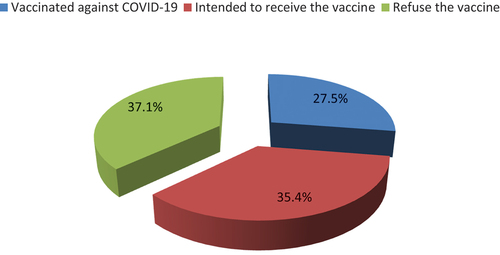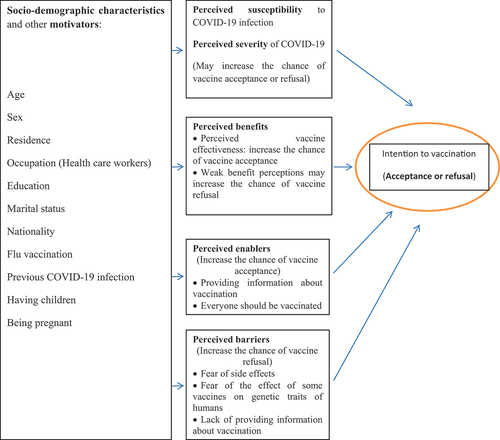Figures & data
Table 1. Socio-demographic characteristics of study participants (N = 5394).
Table 2. Vaccination history of study participants according to nationality (N = 5394).
Figure 1. Participants response regarding COVID-19 vaccination; 27.5% were vaccinated, 37.1% reported that they refuse the vaccination and 35.4% intend to take the COVID-19 vaccine at time of the study.

Table 3. (a): Factors against COVID-19 vaccination among refusing participants according to nationality (n = 2000): perceived susceptibility and complications and perceived benefit (concerns about vaccine effectiveness).
Table 4. (a): Reasons for COVID-19 vaccine acceptance according to nationality among those accepted vaccination (n = 3394): perceived susceptibility and complications and perceived benefit.
Table 5. Relationship between respondents’ socio-demographic characteristics and vaccine acceptance.
Table 6. Factors associated with vaccine acceptance among participants.

